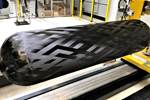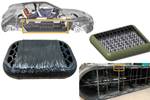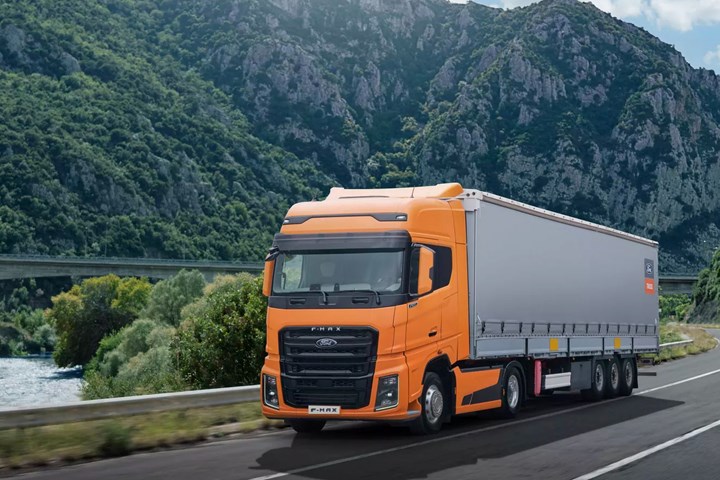Ford Trucks chooses Hexagon Purus to equip FCEV heavy-duty truck
A purchase order for Hexagon’s Type 4 hydrogen vessels will aid in the development of an FCEV prototype per Horizon Europe’s ZEFES program decarbonizing long-haul trucks in Europe.
Hexagon Purus (Oslo, Norway) continues to make headway in the transportation sector with new purchase order announcements for its Type 4 hydrogen storage systems by Ford Trucks (Dearborn, Mich., U.S.).
The company will be delivering a complete hydrogen fuel storage system for the development of a fuel cell electric-powered vehicle (FCEV) as part of the Horizon Europe project Zero Emission Freight EcoSystem (ZEFES). As a partner in ZEFES, a pan-European project specifically targeting decarbonization of long-haul heavy-duty trucking in Europe, Ford Trucks will develop and deliver a fuel cell electric heavy-duty prototype F-Max truck that will operate as part of a larger fleet of zero-emission trucks collecting data from real-world operations.
The F-Max FCEV will be Ford Trucks’ first fuel cell-powered vehicle, developed and manufactured in Turkey, and will begin European Ten-T corridor demonstrations in 2025 as part of ZEFES project goals.
“We focus our investment, R&D and innovation efforts in line with our global electrification strategy to be a leading player in the decarbonization transformation happening in the automotive industry,” says Ford Trucks’ vice president Emrah Duman. “We are happy to have the support from Hexagon Purus as an experienced partner in our development plan of a fuel-cell electric heavy-duty truck.”
ZEFES will deploy a total of nine different long-haul truck configurations split into six battery electric- and three fuel-cell electric trucks. The nine trucks will operate for 15 months and collect up to 1 million kilometers of driving data from real-world operations. With 40 partners from 14 countries and a total investment program of €35.5 million, ZEFES will bring together the road transport value chain to move the transportation sector one step closer to EU’s Green Deal emission targets.
Delivery of the complete hydrogen storage system is scheduled for Q1 2024.
Hexagon has also aided Solaris hydrogen-electric buses, and the Xcelsior Charge H2 fuel cell electric bus this year.
Related Content
-
Sinonus launches energy-storing carbon fiber
Swedish deep-tech startup Sinonus is launching an energy-storing composite material to produce efficient structural batteries, IoT devices, drones, computers, larger vehicles and airplanes.
-
TU Munich develops cuboidal conformable tanks using carbon fiber composites for increased hydrogen storage
Flat tank enabling standard platform for BEV and FCEV uses thermoplastic and thermoset composites, overwrapped skeleton design in pursuit of 25% more H2 storage.
-
Dawn Aerospace reusable rocket-powered aircraft flies twice in one day
Eighth and ninth flights of composites-intensive Mk-II Aurora reach an altitude of 63,000 feet, demonstrates same-day reusability capability for rocket-powered systems.

















